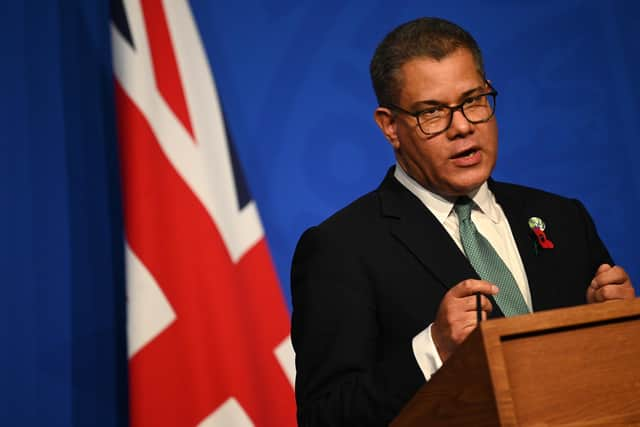Anything short of saving our planet cannot be a success - Rashmi Dube
Surrounding it were vendors selling souvenirs, much like you would see in London, all made from plastic or with some plastic covering. None of which are recyclable, and the tourists consume it like there is no tomorrow.
When I went to visit the Tower, it was surrounded by glass barriers and aspects being held up by scaffolding while works are being carried out to maintain it. Visitors are still climbing the stairs and from a distance, it is clear they are enclosed in the tower by the metal, all with the same aim – to climb the steps to the top.
Advertisement
Hide AdAdvertisement
Hide AdThe difference with us in terms of climate change is people don’t see the edges of the planet or acknowledge that which not only surrounds them but is immediately in front of them and we all have differing aims. A lot of us are still swimming in what we believe is our own pool but not appreciating that by flapping our wings, we are the cause of the disaster some 700 miles away.


Are we just keeping our nose to the grindstone and simply wanting more, bigger, better with more money and more profit with more consumers? If so, we will surely fail to save the planet.
COP26 has concluded and debate is raging – was it a success or failure? Is it going to result in real change is the question I want answering, or was COP26 just a show and tell performance? After all, it is not legally binding. Was there any real chance for change?
I believe this has a lot to do with legislation with some businesses pushing back. There is also the issue around the eleventh-hour change from India and China (both among the biggest burners of coal) where the pact now refers to “the phase down” of coal as opposed to “phase out”, which means what exactly?
Advertisement
Hide AdAdvertisement
Hide AdJohn Kerry is quoted as saying that “…Paris built the arena and Glasgow is the start of the race.”
The race isn’t long and not everyone is participating, and if we are not participating, then by default we are acting as saboteurs.
Businesses are going to be wondering what changes to legislation are going to take place, how quickly and if there is going to be a form of taxation around the changes.
There is a clear global census from the leaders that something has to be done to stop the Earth warming 1.5 degrees Celsius, or even the catastrophic 2C threshold. The actions now need to be accelerated, and the policy that has to come from this has to be credible and a pill that businesses are going to swallow.
Advertisement
Hide AdAdvertisement
Hide AdThe question of whether the summit was a success or failure is dependent on Alok Sharma meeting his objectives such as: (1) net zero by the middle of the 21st century; (2) ecosystem restoration; (3) mobilising private finance to address the climate challenge; and (4) fostering international collaboration to accelerate progress on climate goals.
Was this a success? There are degrees of failure and success – though to me it is clearly obvious that anything short of saving our home planet cannot be a success. Let us not water down the economic arguments but accept the position on what is likely to happen to the next generation.
From the Earth’s perspective, we need immediate action to start drafting legislation and setting up communications with businesses of all sizes to help them understand the changes that need to be made and support them at every step of the journey. This should also include the small businesses – and the street trader who only just wants to earn. The task is mammoth. I’m not sure about hope. What I am sure about as a CEO or NED is I need to ensure companies are preparing to be at the top of their game in terms of the environment.
We need to ensure our ESG goals are in place, and that we are employing any new legislation. I just hope there is clear communication and leadership when the legislation arrives. Then maybe, if businesses can work together to help their suppliers create change, the speed of transformation might prove to be quicker than anyone would have dared to dream.
By Rashmi Dube - Partner – gunnercooke
